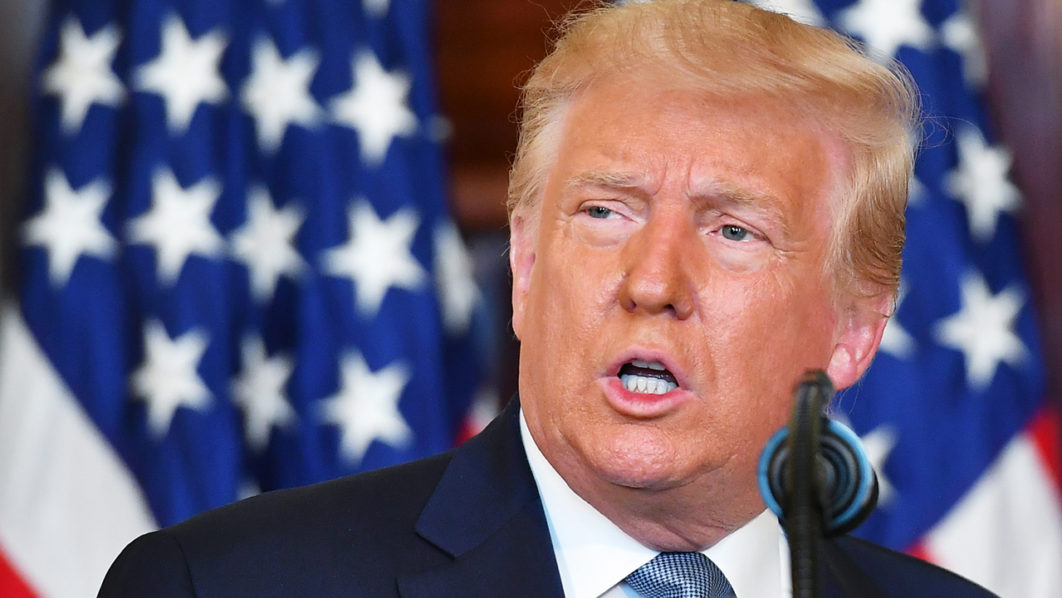
Before and during his nearly six months on the Trump campaign, Paul Manafort, a veteran Republican political consultant, directly and indirectly communicated with Konstantin Kilimnik, identified as a Russian intelligence officer, and Oleg Deripaska, a Russian oligarch close to Vladimir Putin, the Senate Intelligence Committee said.
“On numerous occasions, Manafort sought to secretly share internal campaign information with Kilimnik,” including polling and strategy details, it said.
While the reason for the sharing was not clear, the report said, it noted that it took place just as Russian GRU intelligence and a government-linked social media operation actively sought to tilt the election toward Trump.
Manafort “was secretly communicating with a Russian intelligence officer … while the Russian intelligence operation to assist Trump was ongoing,” the report said.
“Taken as a whole, Manafort’s high-level access and willingness to share information with individuals closely associated with Russian intelligence services, particularly Kilimnik and associates of Oleg Deripaska, represented a grave counterintelligence threat.”
– ‘Witch hunt‘ –
The report came as US intelligence has warned of active Russian attempts to interfere in the current presidential race in Trump’s favor.
Trump has repeatedly denied colluding with or reaping support from Russia in 2016, calling investigations a “witch hunt.”
Earlier Tuesday he said in a tweet that the real scandal was that the previous administration of Barack Obama, in investigating Russia collusion, had been “spying” on his campaign.
In a statement his current campaign called the allegations of cooperation with Russia a “hoax” and said the Senate report did not prove any collusion.
Nancy Pelosi, the Democratic speaker of the House of Representatives, said the report “further exposes the alarming lengths to which Donald Trump and his campaign welcomed and relied on a hostile foreign power’s interference in the 2016 election.”
Referring to reports of Russian meddling in the current race, she said Trump “is publicly giving foreign powers the green light to attack our elections.”
– Jailed for fraud, not spying –
The Senate report, the final product of a three-year investigation into Russian election meddling in 2016, described numerous incidents in which the Trump campaign actively sought the help of Moscow and WikiLeaks to damage the campaign of Trump rival Hillary Clinton.
Much of it repeats the conclusions of the Justice Department special counsel investigation of Robert Mueller.
But Mueller was running a criminal investigation, which concluded that despite numerous contacts between the Trump campaign and Russia a case of criminal conspiracy could not be made.
The Senate report went further in outlining the national security risks.
It was also more direct, categorically calling Kilimnik a Russian intelligence officer and saying billionaire Deripaska often engaged in overseas influence operations in coordination with Moscow.
“The special counsel’s inability to ‘establish’ a criminal conspiracy between the Trump campaign and Russia does not convey the breadth and complexity of the threat presented by their actions,” the Senate report says.
Manafort, who was dropped from the campaign in August 2016, nearly three months before the election, had known Kilimnik and Deripaska for years from his work with them in Ukraine, where he was a political consultant, the report notes.
But it said it had no explanation for his secrecy in transmitting to them internal campaign information.
Manafort was investigated by Mueller and eventually convicted on multiple charges of tax and bank fraud and money laundering related to his Ukraine business, but unrelated to the 2016 campaign.
Sentenced last year to seven and a half years in jail, the 71-year-old was released in May to home confinement to protect him from the coronavirus threat.
Trump has repeatedly suggested he could pardon Manafort.



